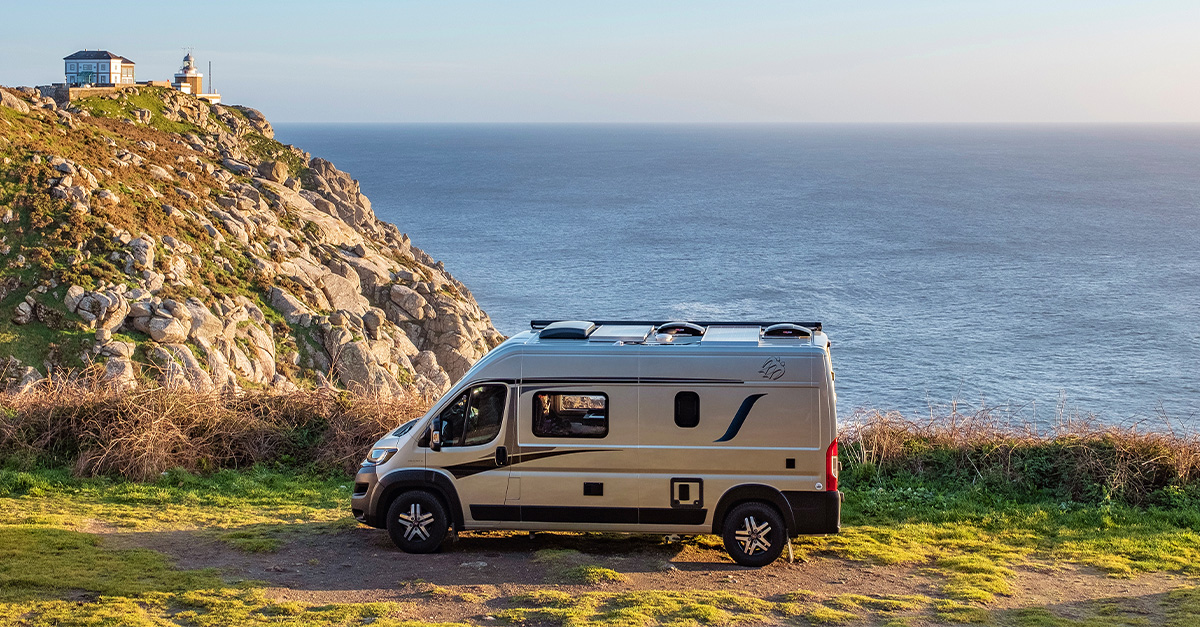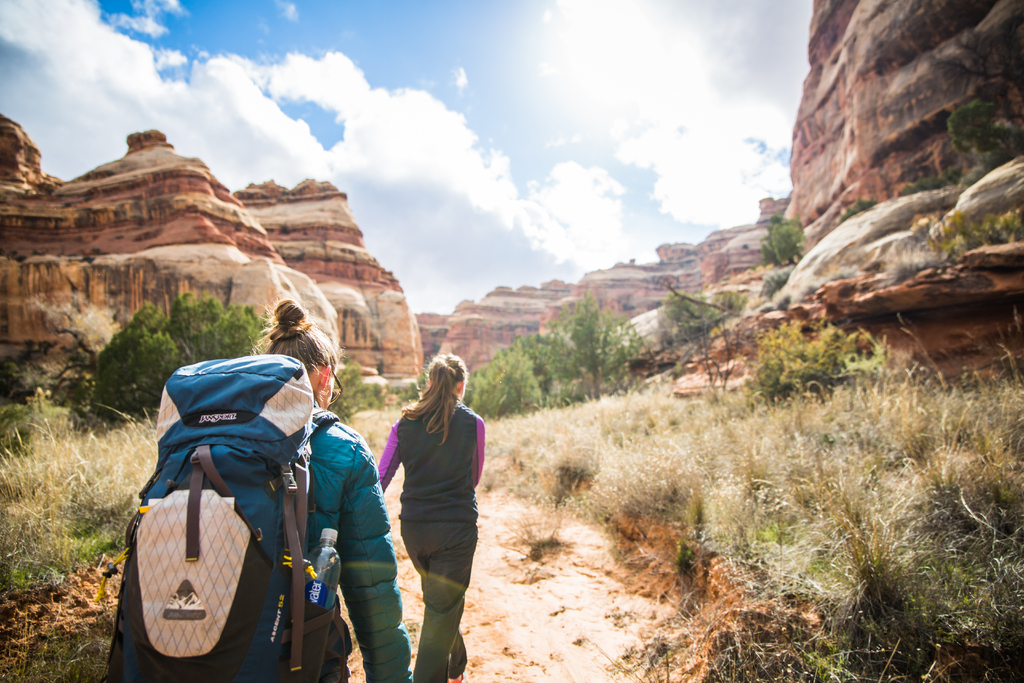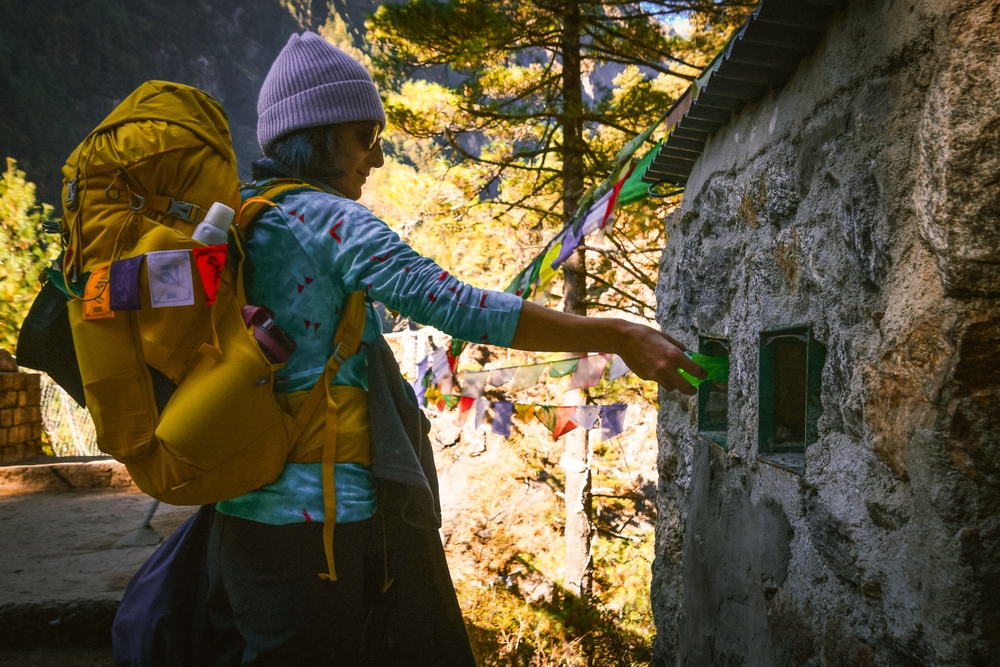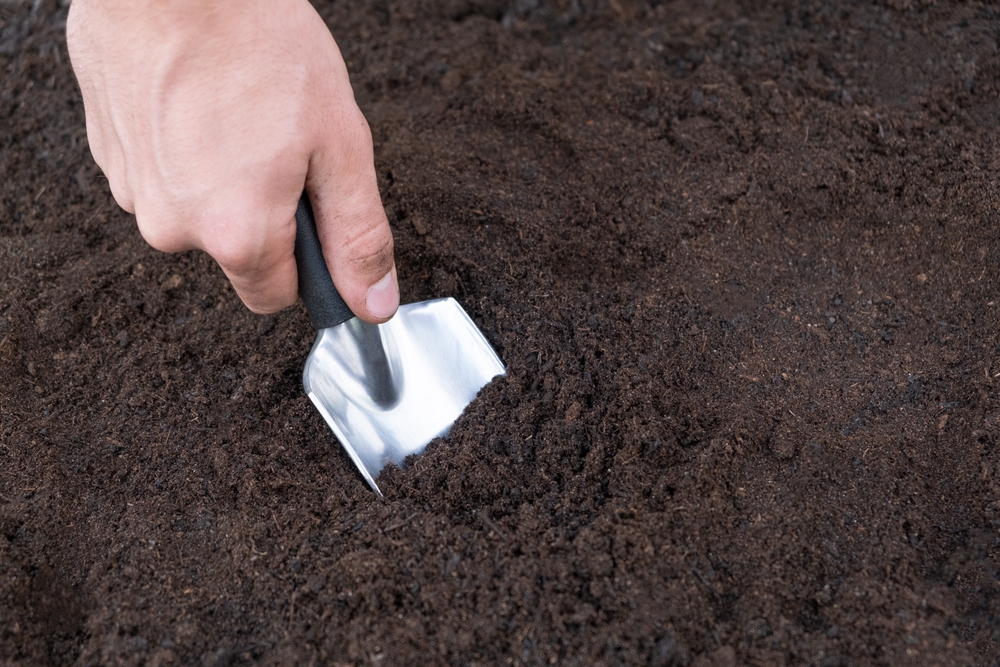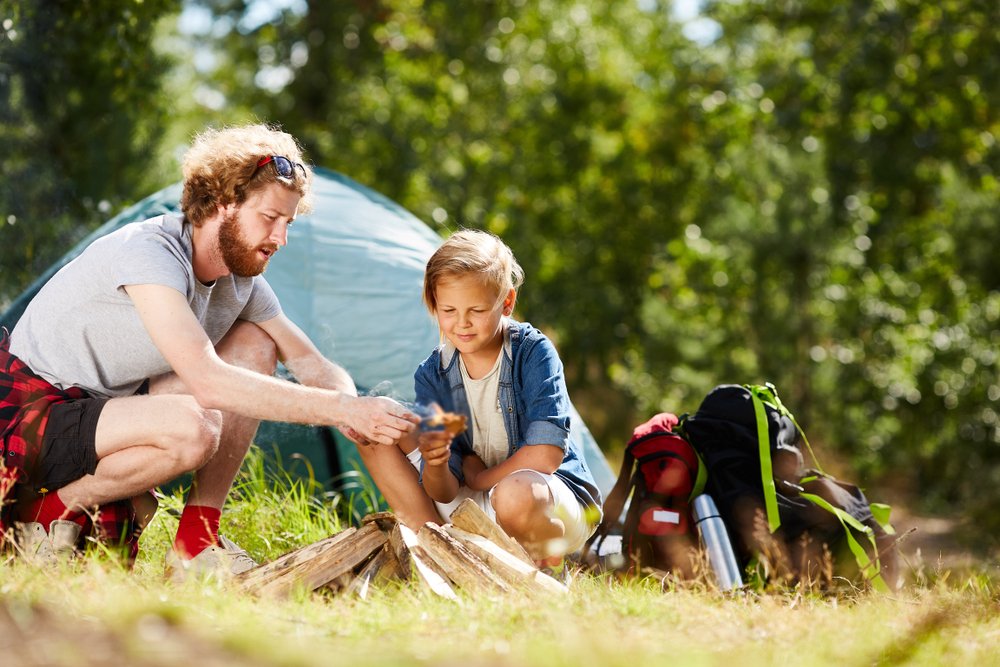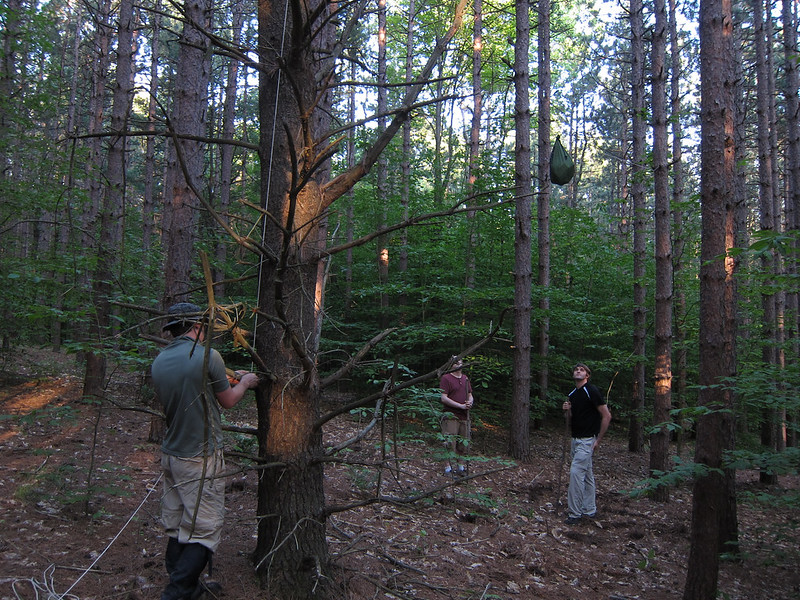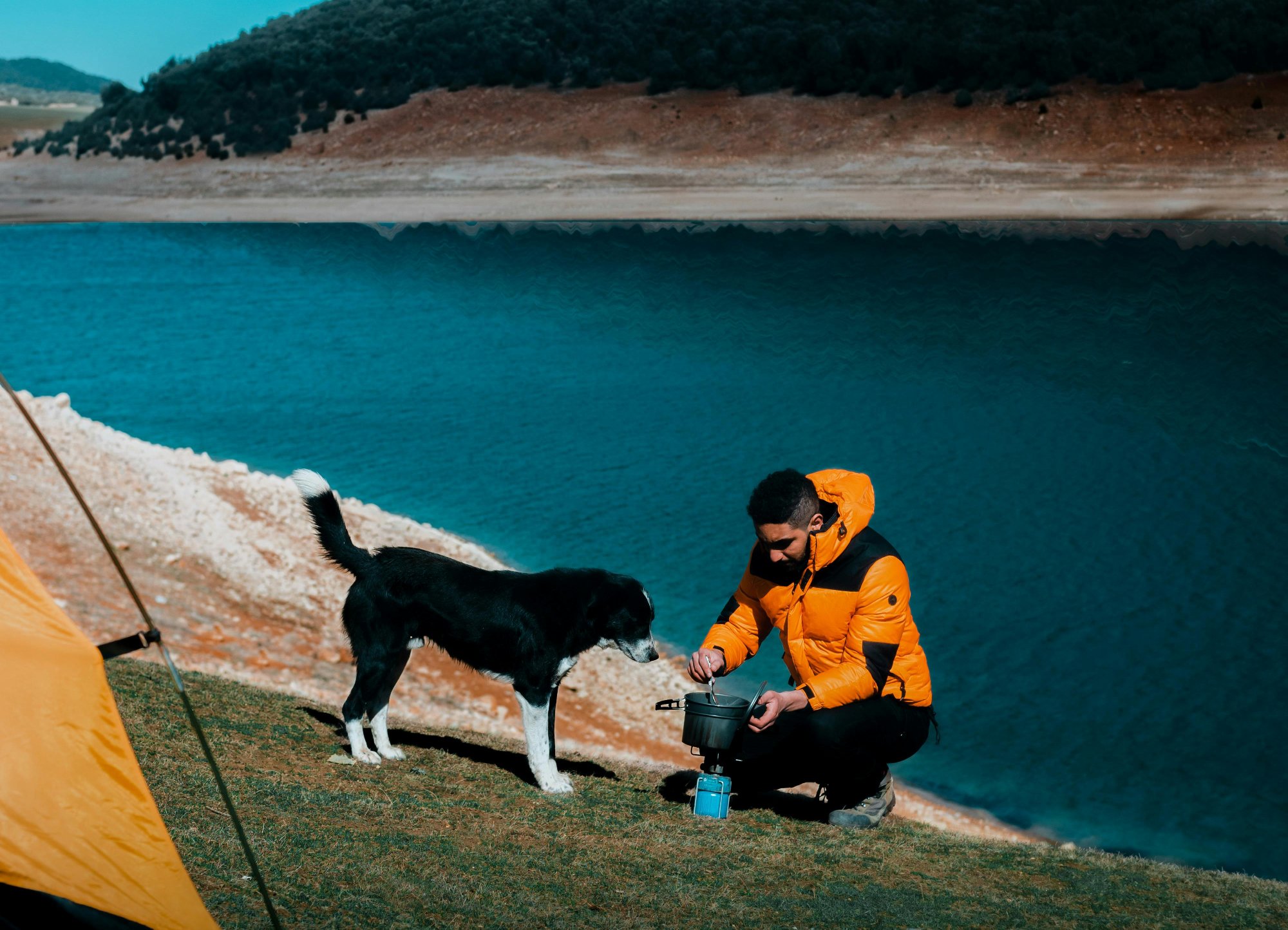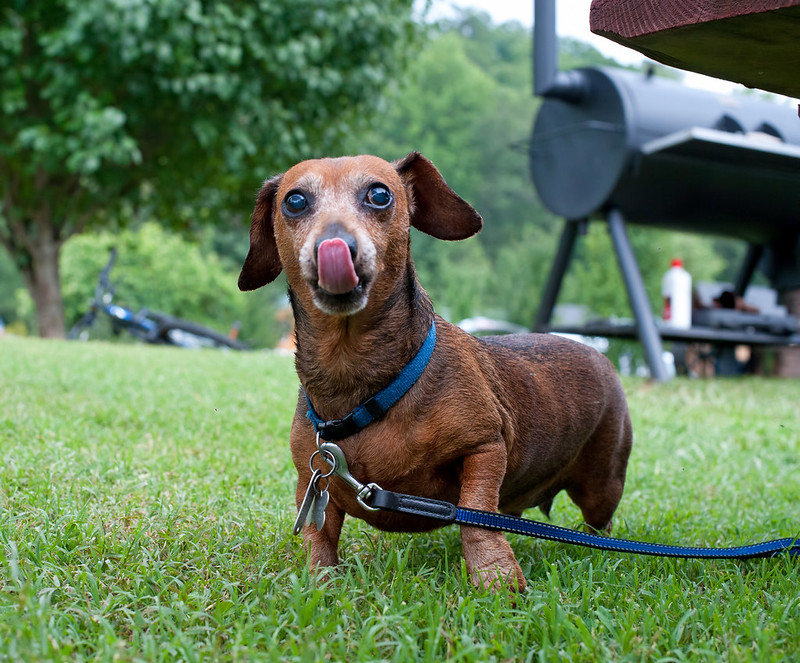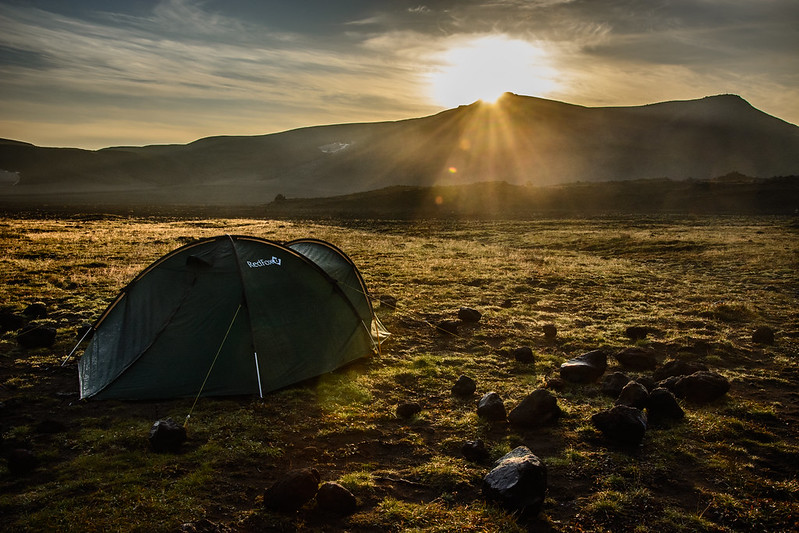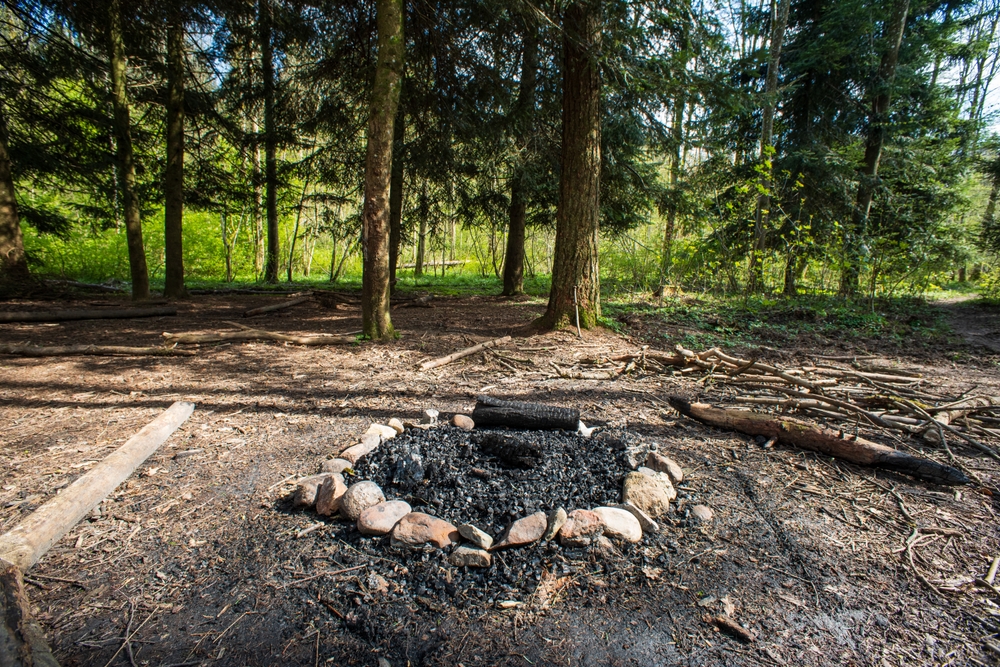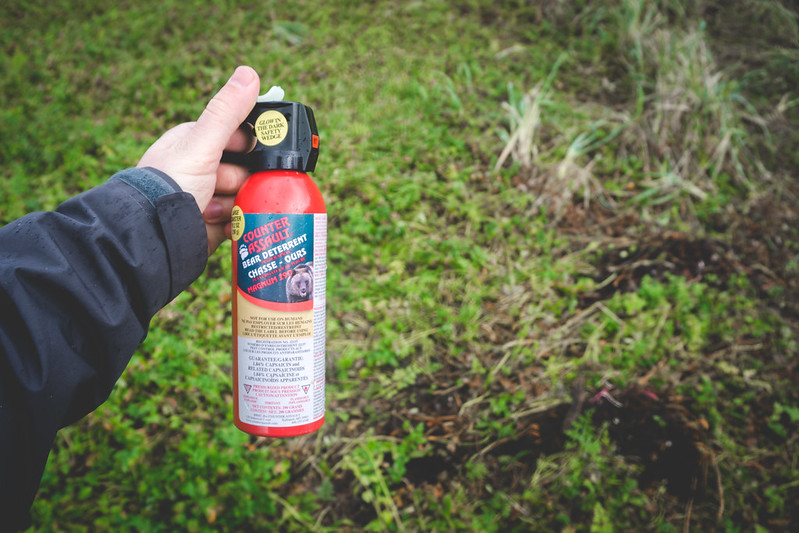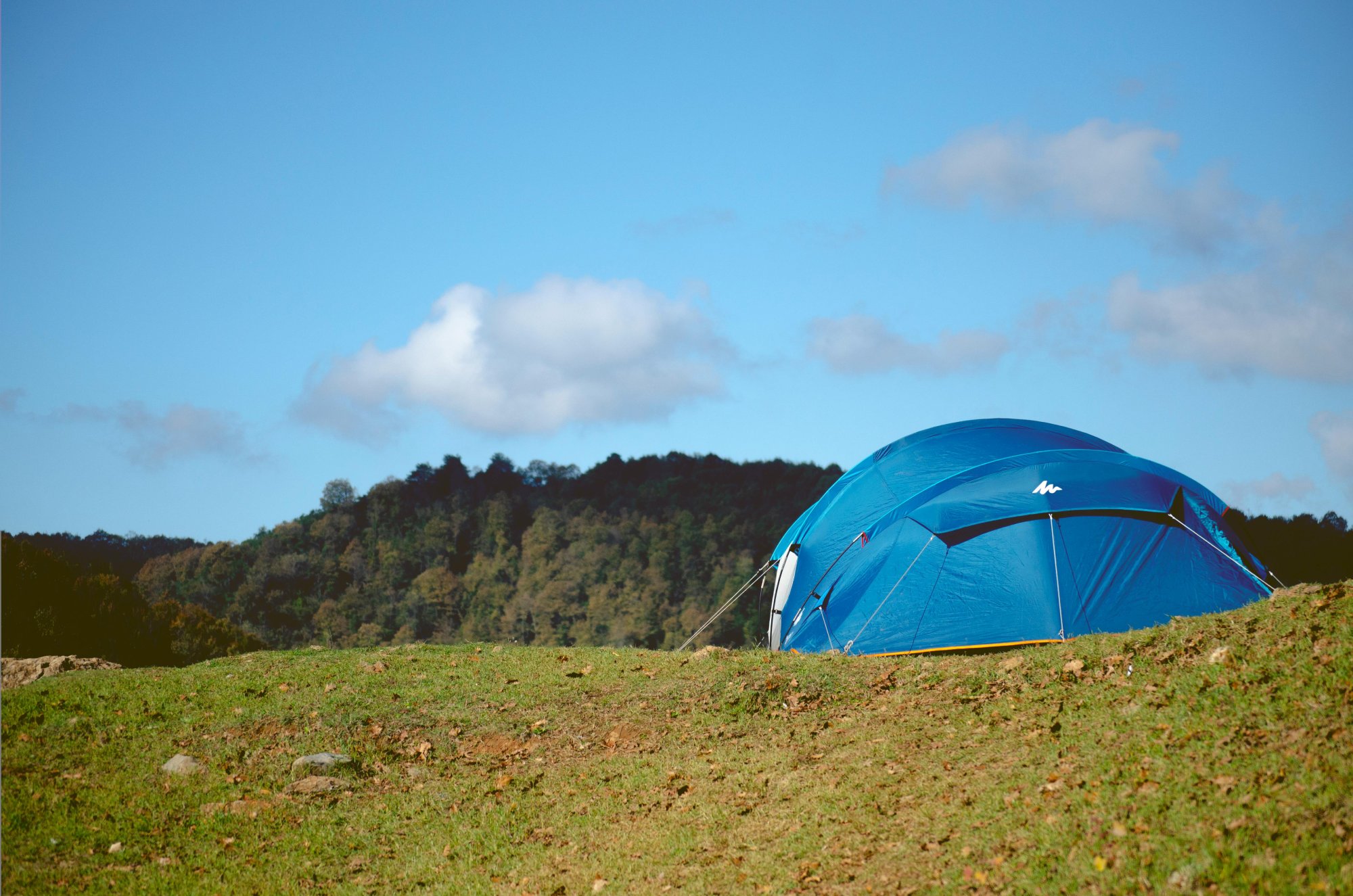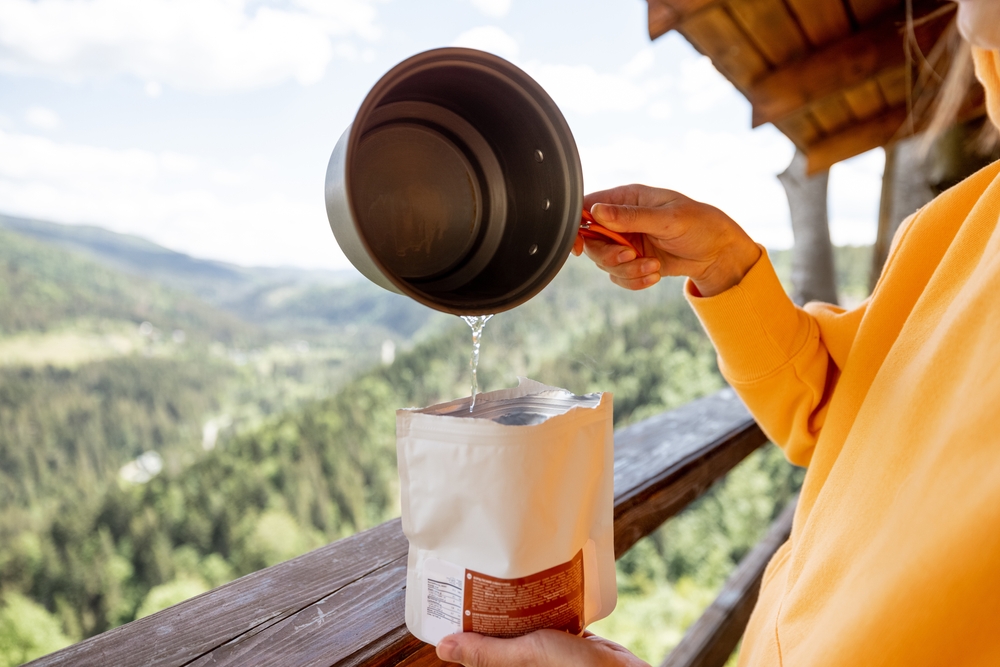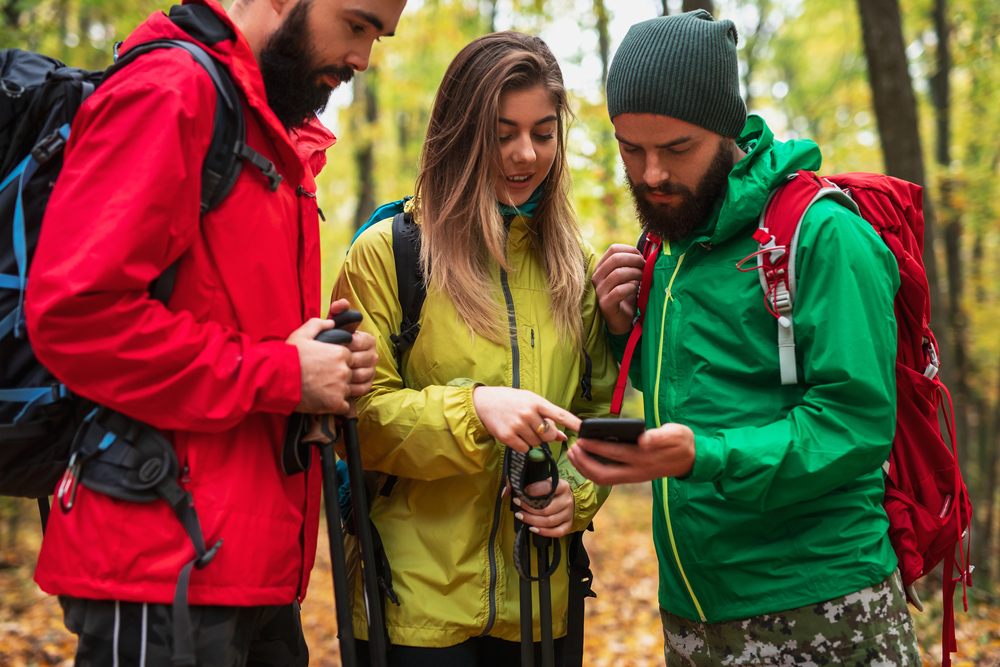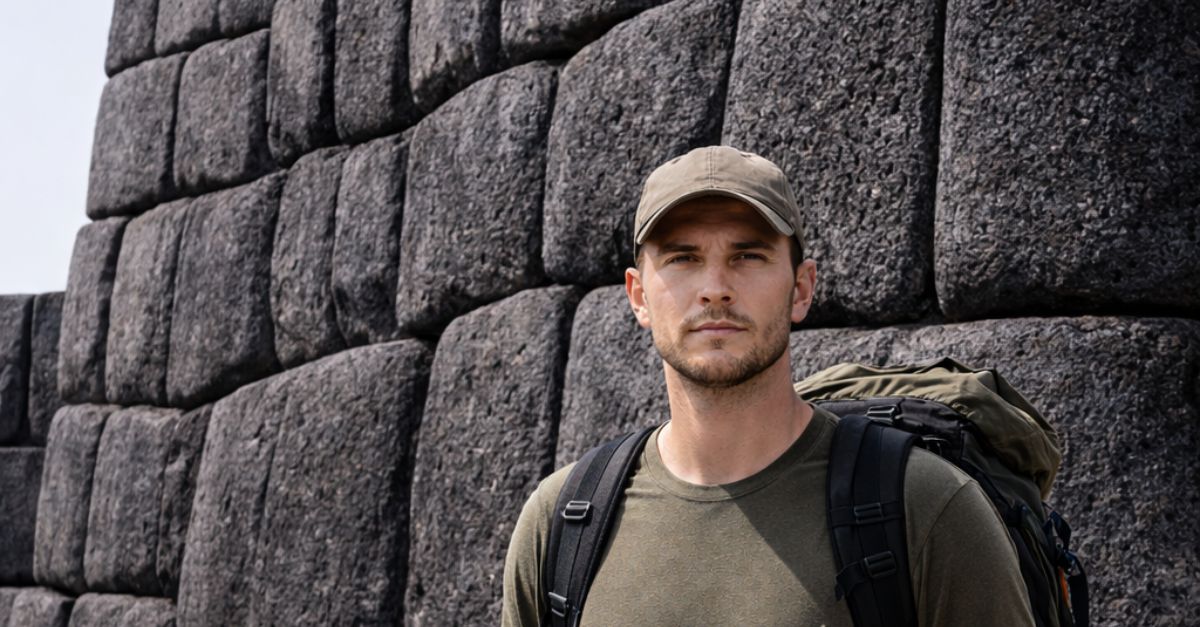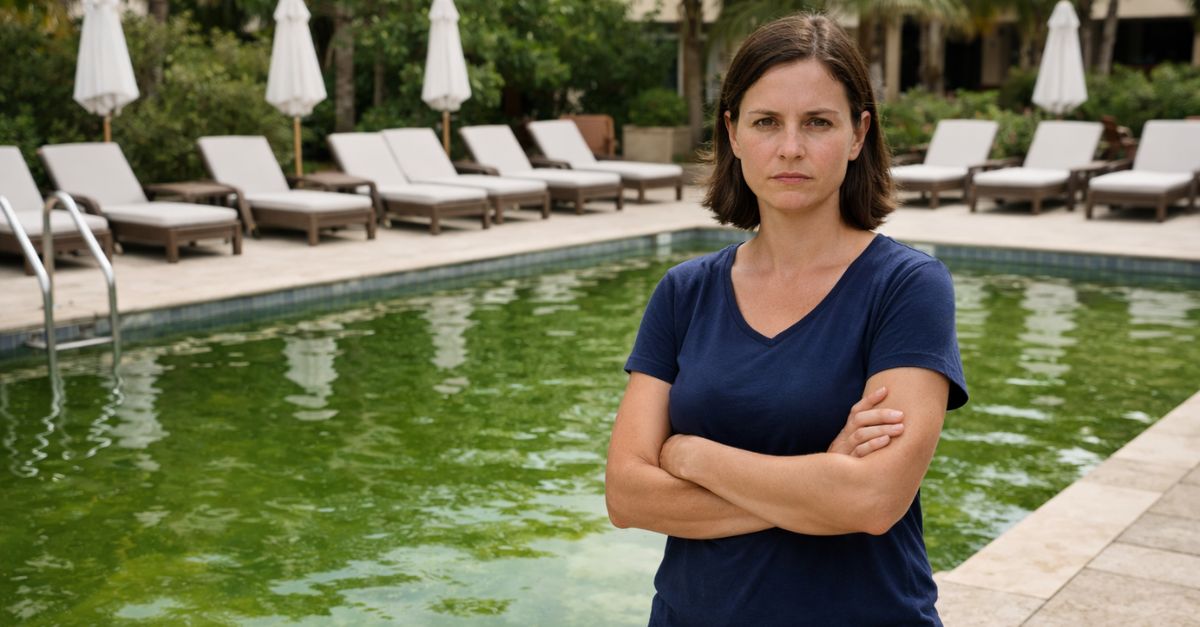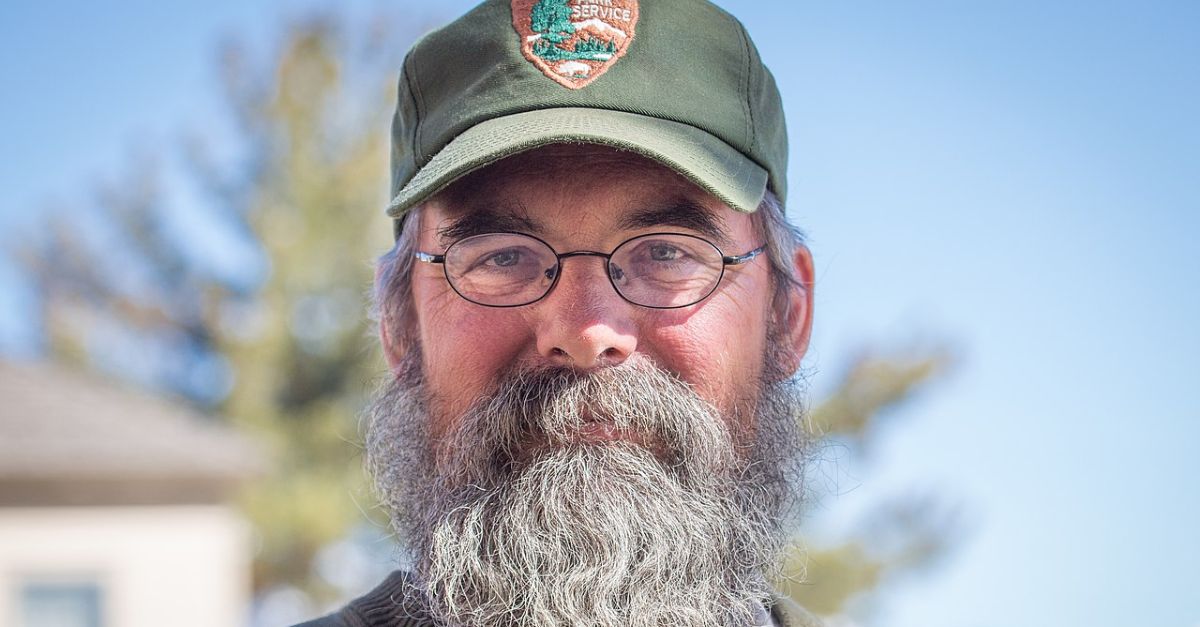Random Camping: What Is It & How To Do It Responsibly
Random camping is otherwise called "backcountry camping" or "wild camping"—differing slightly from camping at designated sites, random camping involves camping in the wilderness without access to facilities or amenities. It's the ultimate camping experience—pack in, pack out, don't litter, and leave no trace.
Random camping has become more popular as folks seek to reconnect with nature and save money by not paying sometimes up to $50/night in a campground. If you're looking to hit the trails this fall and get off the beaten path, how can you ensure you're random camping responsibly?
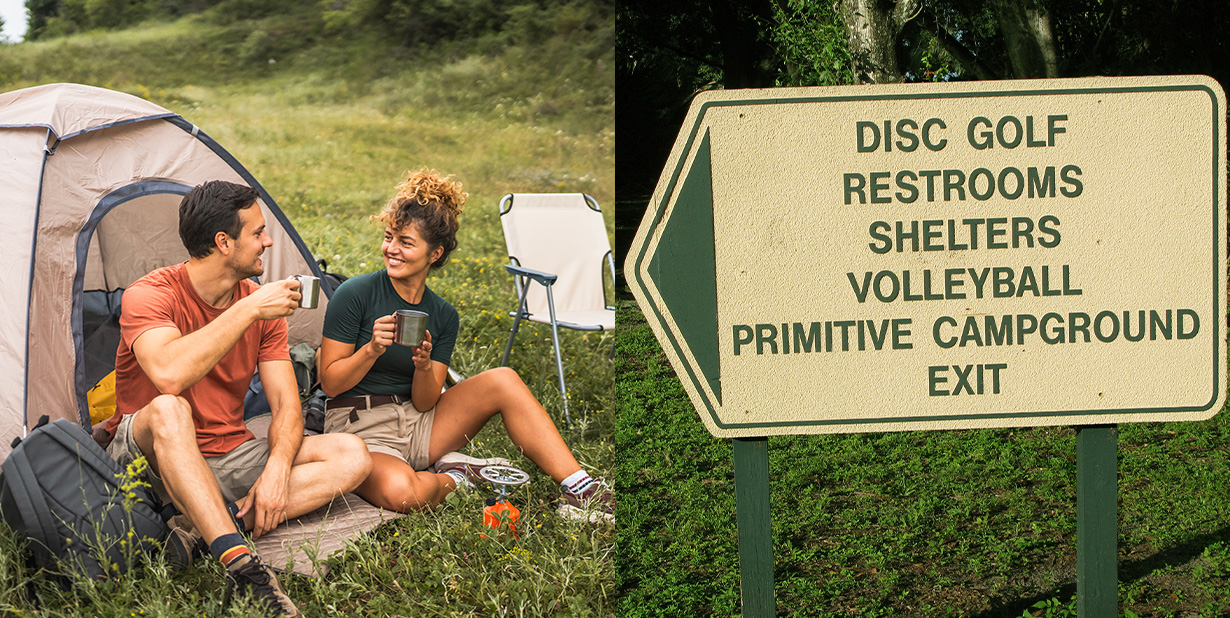
Random Camping Or Traditional Camping?
The subtle—but important—difference between backcountry camping and traditional camping is that the latter is usually done by paying for a spot at a regulated, staffed, and stocked campground. Often, firewood and food are available on-site or close by, and other facilities such as showers, bathrooms, and kitchen-esque facilities may also be available.
On the other hand, random camping is done far away in the bush, and you're often isolated from others by many miles and could find yourself deep in dense forest or up high on a mountain peak. Random camping is only permitted on public lands in the United States, and you're not allowed to random camp for more than 14 days in a consecutive 28-day period. It's a good idea to check with your local Bureau of Land Management Office or look online for free campsites near where you're traveling to—these are generally "random camping allowed" campsites.
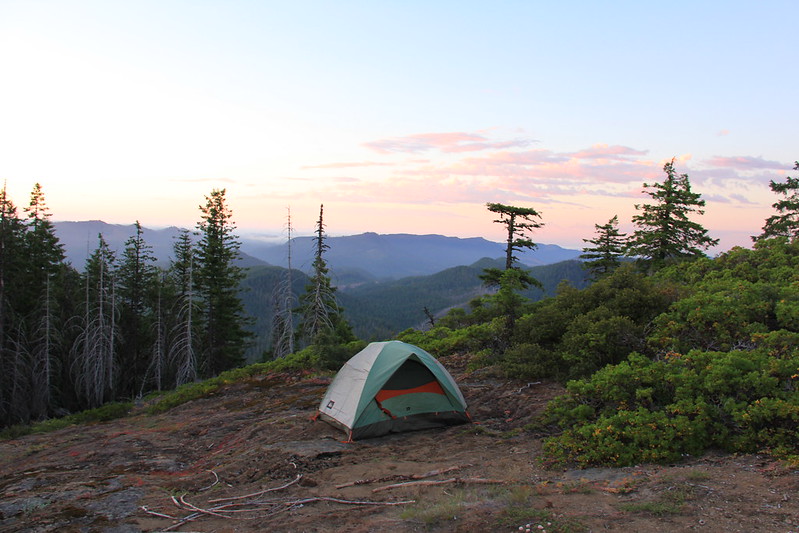 Bureau of Land Management Oregon and Washington, Flickr
Bureau of Land Management Oregon and Washington, Flickr
Random Camping Best Practices
Below are a few best practices to observe when backcountry camping, no matter where you are.
Leave No Trace
The "leave no trace" doctrine is often observed by hikers and campers, regardless of whether they're wild camping or at a designated campsite. It's a simple principle that you should leave places as undisturbed as possible so that there's no trace that you were there. Leave what you find, minimize campfire size and disruption to the surrounding area, and dispose of your waste properly.
Poop Responsibly
We all know that "doing your business" outdoors is somewhat of a pain, particularly for No. 2. If you can, pack away your waste in an odor-proof, sealed bag system. Alternatively, bury your waste at least six inches deep (you can pre-dig a pit toilet)—just make sure you cover it with earth again before you leave.
Make A Small Campfire
There's no need to go hacking down half the forest. Make a small campfire with a few dry branches of deadfall, but don't cut off anything that's attached to a tree, if you can help it. Make a small campfire and try and light it using no fuel like gasoline or other accelerants. A magnesium fire starter is a great option, or some trusty old matches and paper.
Hang Food In A Tree If In Bear Country
If you know that you're in a place where there could be bears, you must hang your food up a tree, off a branch somewhere. Your rope needs to be strong enough to hold the weight of your food, but not low enough to entice a hungry bear. Also, pack your cookware and scented items in your bag and hang it securely. Your chosen tree should be at least 150 feet from your campsite and at least 15 feet high.
Clean Up After Your Pets
Camping with pets is one of the great joys of having them—and cleaning up after them is just as important as cleaning up after yourself. If you don't want to pack out with a doggy-doo bag, then bury their waste six inches beneath the soil and cover it.
Leash Your Pets!
Always keep your pets leashed, regardless of how safe you think it is. Even if you can't see or hear wildlife like bears, coyotes, or wolves, it doesn't mean they aren't there. They're carnivores and your dog could be dinner. Don't risk letting your dog off-leash, even if they're usually off-leash when being walked.
Observe Quiet Hours
One of the main reasons why people choose to wild camp over a traditional one is because of the solitude it provides. Nobody wants to hear your music blaring from your Bluetooth speaker at midnight. Be polite and considerate of others by observing quiet hours of between 11 pm and 7 pm (or later) for music and general loud-noise-making.
Respect Fire Bans
If the area you're camping in has a fire ban in place, it generally applies to all fires, including campfires such as yours—just because you're outside of the boundaries of a National or State Park, or are camping on public lands, doesn't mean you can disobey the law regarding fires. Check your local office of natural resources to see if the area you're hiking in is subject to a fire ban.
If you must have a campfire (and there is no fire ban), make sure it is completely extinguished by dousing it with water, stirring it to expose any embers that could re-ignite, and then dousing it with water again. It should be cool to the touch before you depart—you don't want to cause a forest fire because you are impatient.
If you use rocks to build a base for your campfire, be sure to disperse them throughout the area afterward and disperse the ash as well.
Let Others Know Where You'll Be Camping
It's a good idea to let others know the rough area where you'll be camping, or if you're headed for a specific backcountry campsite, then give your closest friends and relatives the name of that site or the general area. In case you have an accident and are unable to communicate, your friends and family will be able to notify search and rescue of your approximate location.
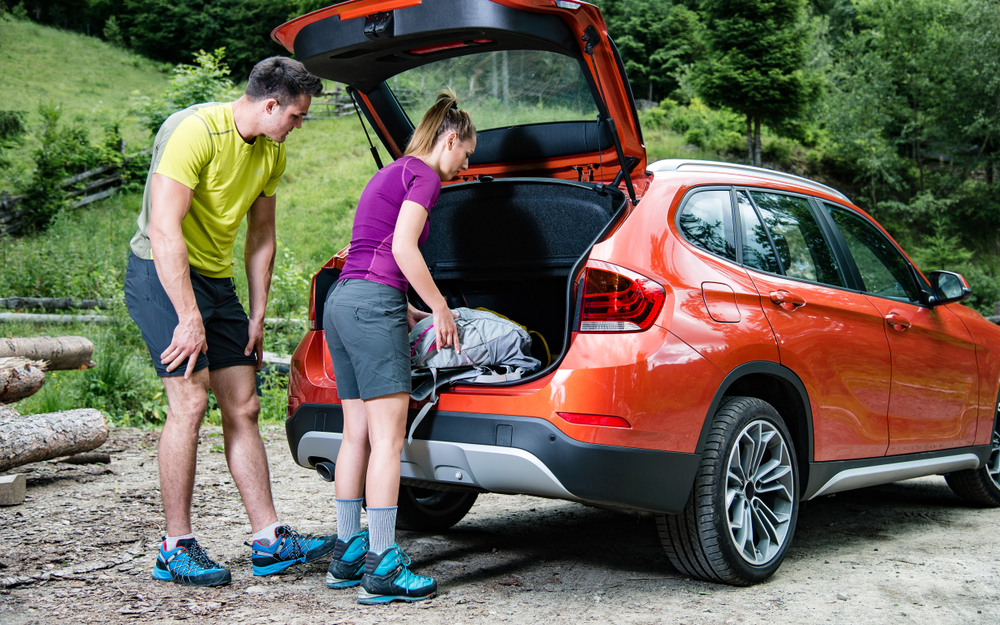 Radoslaw Grzybowski, Shutterstock
Radoslaw Grzybowski, Shutterstock
Bring A GPS
While you may be map-savvy, your GPS can act as an emergency locator. It's well worth bringing along your GPS as a backup in case you lose your way or get hurt on the trail. Familiarize yourself with how your specific GPS works before you leave, just in case you need to use it in a hurry.
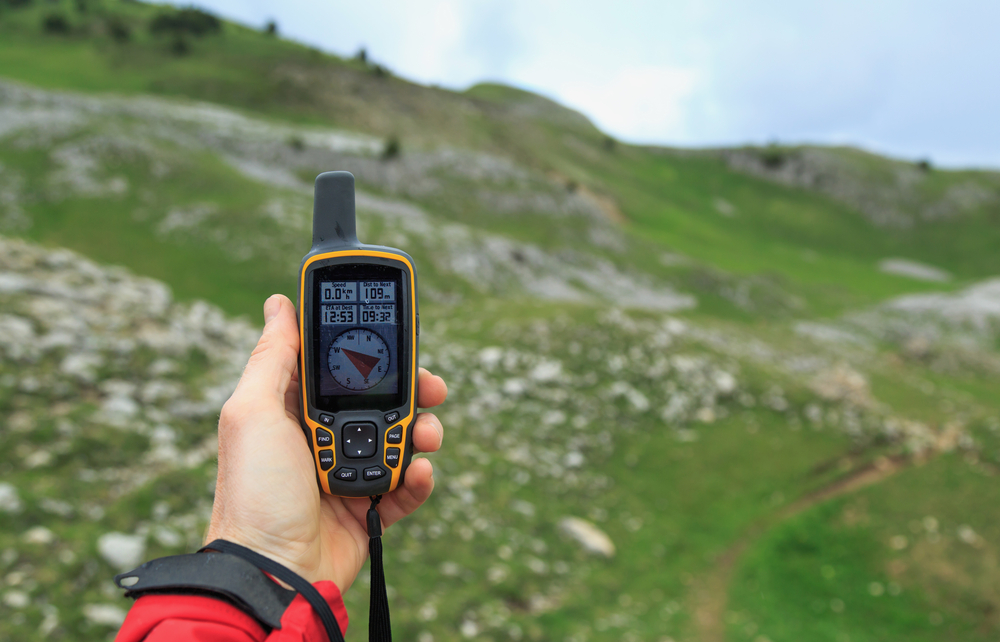 Sander van der Werf, Shutterstock
Sander van der Werf, Shutterstock
Bring Bear Spray
As long as you are within the boundaries of the law in your local area (and there are bears, obviously), bring a can of bear spray with you when venturing into the bush. This is particularly true in May, June, and July, as this is bear mating season. In addition to bear spray, it's worth learning what to look for when out on the trail if bears have been spotted or may be around, and what to do if you encounter one.
Bring A Basic First Aid Kit
It's a good idea to bring a basic first aid kit with you, or a specialized one for hiking that contains extra stuff like antihistamines for allergies, a pair of tweezers for splinters, blister treatment creams or ointments, antibacterial ointments, and antiseptic wipes. Take a basic first aid course (if you have no first aid experience) before heading out into the backcountry. You do not want to have a simple cut or scrape made worse because you didn't treat it properly.
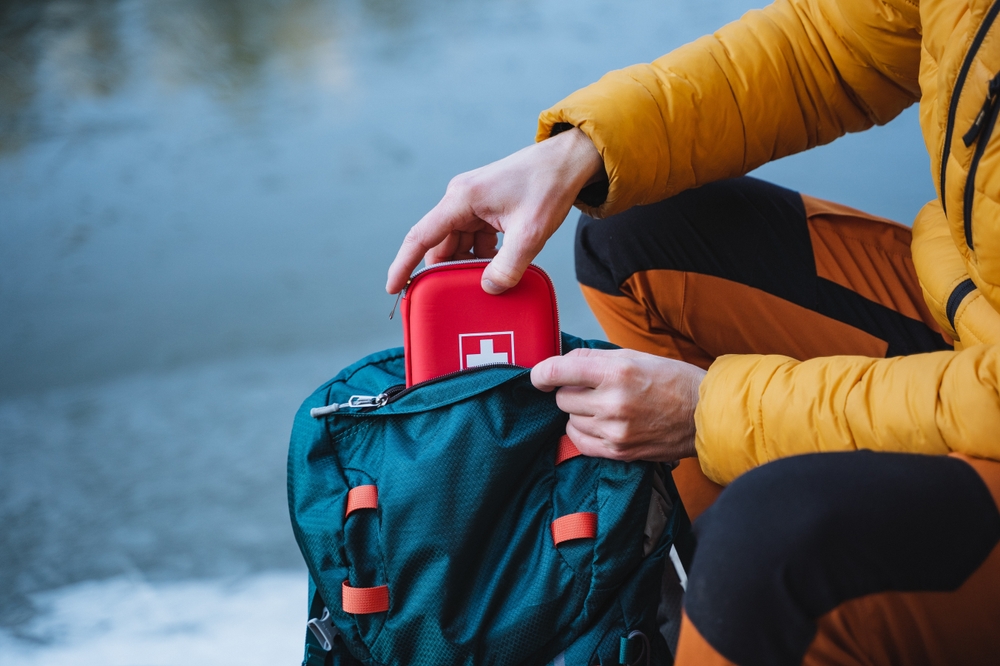 Aleksey Matrenin, Shutterstock
Aleksey Matrenin, Shutterstock
A Hammock Or A Tent When Random Camping?
The age-old debate about comfort when camping won't be rehashed here, but there is a question of which is better when random camping. As hammocks generally attach to two trees, it can be argued that they violate leave no trace principles, as the rope or hammock straps generally tie around the tree. Therefore, it's probably better to leave your hammock at home and just make do with the tent, even if you prefer hammock sleeping while camping.
Dried Meals Are Your Best Friend When Random Camping
Whether you're going for a week, or just a weekend, it's always better to carry dried meals (dehydrated meals—just add water and bam! Spaghetti Bolognese) than to carry canned food. Not only are canned goods much heavier in your pack (not good for your back), but canned goods also attract critters (not good for your life). Try to find some dried meals that you can add hot water to, give them a quick stir, and Bob's your uncle: Bellissima!
Where Can You Random Camp In The United States?
In general, you can random camp anywhere on public lands in the United States, unless it is otherwise sign-posted that random camping is not allowed. If you're looking for information on where you can freely camp on public lands in the United States, you can look online at the Bureau of Land Management's website on campgrounds around the US.
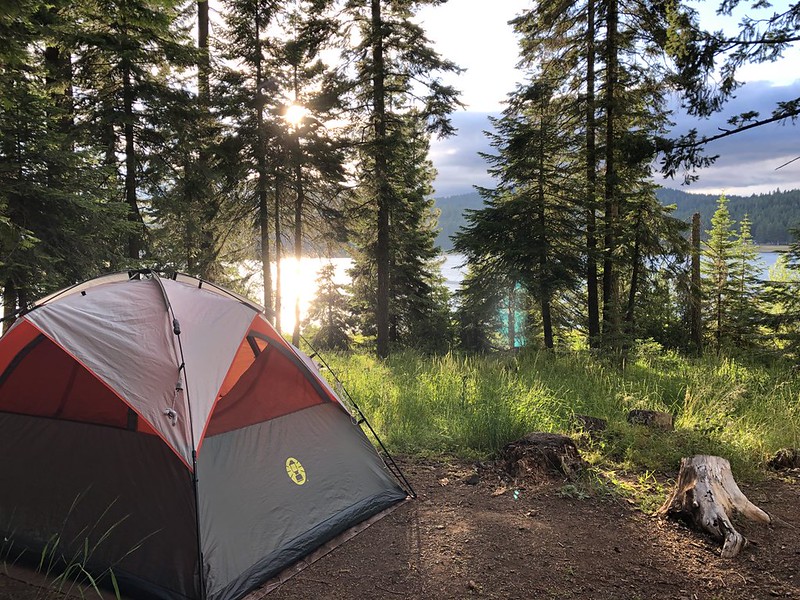 Bureau of Land Management Oregon and Washington, Flickr
Bureau of Land Management Oregon and Washington, Flickr
These Outdoor Enthusiasts Sued The Government
This is one lawsuit worth noting in the context of free camping on public lands. Recreation.gov is an app and website that is supposed to act as a national portal for accessing activities held on public lands.
In February 2023, seven outdoor enthusiasts sued the Federal Government and their contractor, Booz Allen, alleging that hundreds of "junk" fees were charged to users of the recreation.gov website and app. App users, according to a class-action lawsuit, are suing Booz Allen for $5 million in damages.

